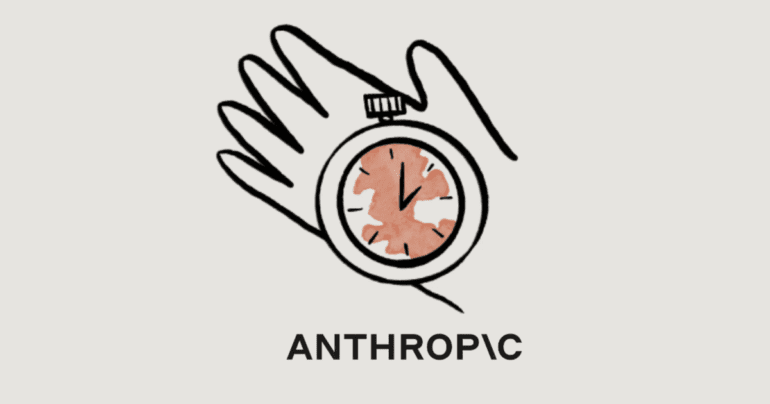TL;DR:
- Anthropic, co-founded by ex-OpenAI executives, introduces Claude Instant 1.2, an improved iteration of its entry-level language model (LLM).
- Claude Instant 1.2 combines features of Claude 2, demonstrating advancements in math, coding, reasoning, and safety.
- Internal tests show Claude Instant 1.2 outperforms its predecessor in math and coding benchmarks.
- Notable improvements include structured responses, better formatting adherence, enhanced quote extraction, multilingual capabilities, and question answering.
- Claude Instant 1.2 showcases increased immunity to unauthorized access and reduced likelihood of generating incoherent content.
- Context window in Claude Instant 1.2 remains consistent with Claude 2, allowing analysis of around 75,000 words.
- Anthropic’s goal is to develop a cutting-edge self-teaching algorithm for various AI applications.
- Claude Instant 1.2 competes against comparable entry-level products from OpenAI, Cohere, and AI21 Labs.
- Anthropic’s funding of $1.45 billion, with a projected requirement of $5 billion in the next two years, underscores its ambitious plans.
- Partnerships with entities like Quora and integrations with platforms like DuckDuckGo and Notion amplify Claude’s reach and utility.
Main AI News:
In a strategic move, Anthropic, the pioneering AI enterprise co-founded by former luminaries of OpenAI, has introduced a refined iteration of Claude Instant, its foundational low-level language model. This upgraded version, Claude Instant 1.2, boasts heightened capabilities, demonstrating accelerated performance, heightened cost-effectiveness, and broader accessibility via an application programming interface (API).
Anthropic’s groundbreaking creation, Claude Instant 1.2, emerges as a synthesis of the triumphs inherent in the company’s flagship innovation, Claude 2, while manifesting “notable” enhancements in mathematical prowess, coding acumen, logical reasoning, and fortified safety measures. Rigorous internal testing underscored its superiority over its predecessor, Claude Instant 1.1, exemplified by its remarkable 86.7% proficiency in solving mathematical queries compared to Claude Instant 1.1’s 80.9%, and an impressive 58.7% on a coding benchmark.
According to a blog post by Anthropic, “Claude Instant’s latest iteration generates more elaborate and meticulously structured responses, and meticulously adheres to formatting guidelines.” The 1.2 iteration also attests to marked advancements in quote extraction, multilingual competencies, and adeptness in addressing intricate questions.
One of the most notable breakthroughs attributed to Claude Instant 1.2 is its augmented resilience against attempts at unauthorized access and manipulation, while also demonstrating a reduced propensity for generating erratic or incomprehensible content. In the realm of extensive language models like Claude, “hallucination” denotes the anomaly where the model produces text that is contextually incoherent or erroneous. Conversely, “jailbreaking” signifies the strategic manipulation of linguistic cues to bypass security protocols established by the architects of substantial language models.
Additionally, Claude Instant 1.2 boasts a context window comprising 100,000 tokens, mirroring the dimensionality of Claude 2’s context window. Tokens serve as elemental text units, while the context window represents the breadth of textual input the model factors in before generating subsequent content. This mechanism ensures a seamless flow of information and coherence in generated responses. Claude Instant 1.2, alongside Claude 2, exhibits the capacity to analyze a corpus of approximately 75,000 words, analogous to the length of literary classic “The Great Gatsby.”
As previously elucidated, Anthropic’s primary mission centers on the evolution of a “next-generation algorithm for autonomous AI learning,” a cornerstone ambition emphasized in the company’s investor presentations. This algorithmic innovation harbors the potential to give rise to virtual assistants proficient in email correspondence, research endeavors, artistic creation, literary composition, and an array of other multifaceted tasks, echoing the capabilities demonstrated by monumental language models such as GPT-4.
However, Anthropic’s pursuit steers toward the refinement of Claude Instant, eschewing the role of a mere competitor to embrace its unique stature in the realm of entry-level products. Its strategic posture places it in direct contention with contemporaneous offerings from industry titans like OpenAI and startups including Cohere and AI21 Labs. The overarching aspiration involves the development and commercialization of AI systems specializing in text and, on occasion, image generation.
Established in 2021 under the visionary guidance of Dario Amodei, a former vice president of research at OpenAI, Anthropic has galvanized a significant capital influx, amassing $1.45 billion in funding at an esteemed valuation numbering in the billions. A cursory glance might suggest substantial financial backing, yet the company’s forward projections indicate a necessity for $5 billion across the forthcoming biennium to realize its vision of a pioneering chatbot.
With a burgeoning client base and a collaborative network encompassing numerous stakeholders, Anthropic’s far-reaching influence extends to partners such as Quora. This collaboration facilitates access to Claude and Claude Instant through Quora’s pay-per-use generative AI utility, known as Poe. Further amplifying its impact, Claude lends its proficiency to DuckDuckGo’s recently introduced DuckAssist, a search enhancement tool primed to promptly address users’ basic inquiries. Furthermore, Claude integrates seamlessly with the technical backend of Notion AI, augmenting the capabilities of the Notion workspace, thereby underscoring its indispensability as an AI-powered writing assistant.
Conclusion:
Anthropic’s launch of Claude Instant 1.2 marks a significant advancement in the accessibility and capabilities of entry-level language models. The amalgamation of technological enhancements, increased resilience, and strategic partnerships positions Anthropic to exert a formidable influence in the evolving AI landscape, particularly in areas like virtual assistance, content generation, and linguistic analysis. This move reflects the broader trend of refining AI systems for practical applications and underscores the dynamic competitiveness of the market.

